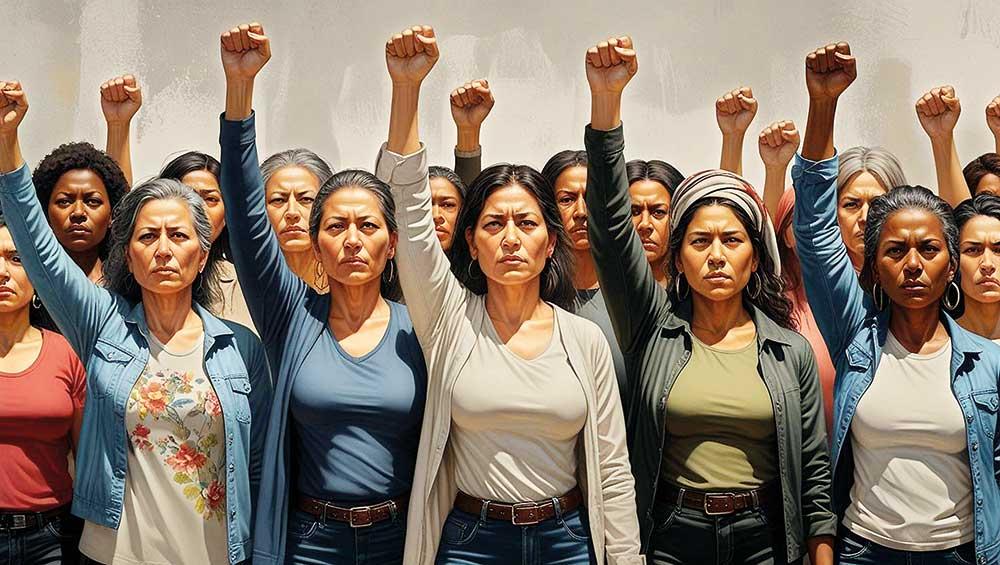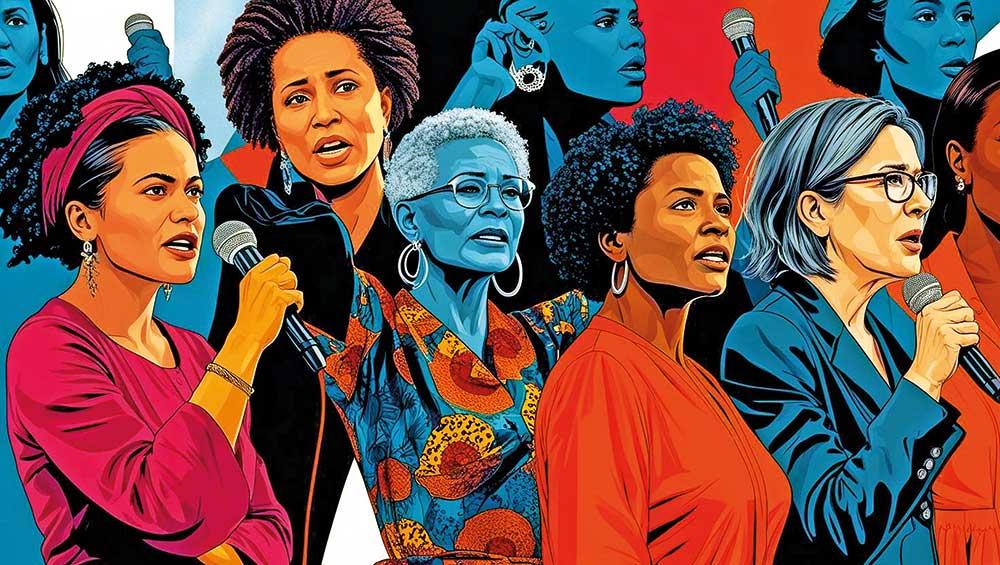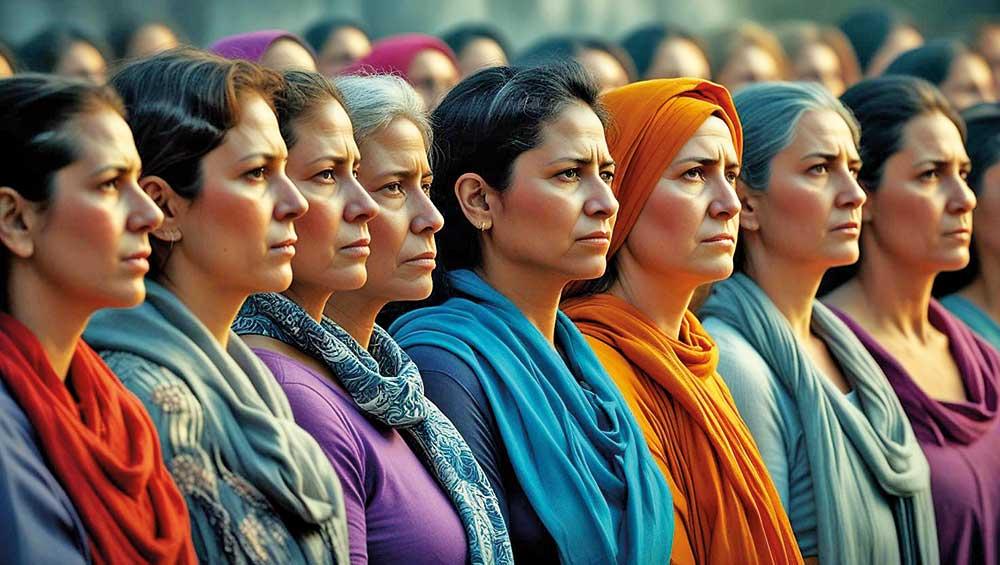
And Why the Messenger Always Gets Shot Before the Problem is Solved |
In an age of so-called transparency and truth-telling, it is strange, and yet not surprising, how fragile our collective relationship with truth really is. We say we want it, that we value justice and progress. But when truth gets uncomfortable, when it challenges social norms, entrenched power structures, or the false safety of group identities, it becomes something dangerous. The messenger, not the message, often bears the brunt of the backlash.
01)
Nowhere is this more evident than in conversations around community-based injustices, especially those involving women’s rights. Time and time again, we witness an unfortunate trend: the moment someone speaks about an issue that involves a marginalised group, even if done with nuance and care, they risk being labelled as an outsider, a racist, or an opportunist. The focus shifts from the issue to the identity of the person raising it. And just like that, the real conversation gets buried. But why do we do this? Why are we so afraid of confronting difficult truths, particularly those that implicate our own communities or ideologies? Why do we shoot the messenger, and ignore the message?
Truth as a Threat to Identity
One of the most powerful drivers of this silencing is identity. In today’s world, identity is often treated as sacred; inviolable, beyond critique. Cultural groups, religious communities, and ethnic collectives have, in many ways, earned the right to be protective. For centuries, they have suffered marginalisation, colonisation, racism, and othering. Their stories have been told for them, often inaccurately and with prejudice. But the pendulum has swung. In trying to protect ourselves from external judgment, many of us have developed an immunity to internal reflection. When someone, especially an outsider, highlights a pattern of injustice or abuse within a community, we react as if the entire group is under attack. The conversation becomes about loyalty, betrayal, and authenticity, not about justice. This is particularly true in patriarchal societies, where women’s issues are often swept under the rug to maintain a facade of cultural or religious purity. When an abuse of power, say, gender-based violence in a conservative or traditional community, is exposed, the person bringing it to light may be accused of airing dirty laundry, of fuelling stereotypes, or of being a traitor. If they’re not from the same community, the accusations intensify: “You don’t understand us.” “You’re attacking our culture.” “You’re being racist.” The irony is painful. In the attempt to protect a group’s reputation, we often end up protecting the very forces that oppress its most vulnerable members.
02)
Silencing as a Form of Control
Silencing the messenger is a historically effective way to kill progress. It’s easier to attack someone’s character than to dismantle systems of oppression. It’s easier to question their tone, their credentials, or their “right to speak,” than to address the complex realities of the issue. This tactic has been used against women for centuries. When women speak up about sexual violence, harassment, or systemic discrimination, whether within their community or beyond, they’re often accused of exaggerating, being emotional, or seeking attention. If they belong to a minority group, they may also be accused of feeding into racist narratives or “dividing the community.” This is not just frustrating; it’s dangerous. When we silence women, or anyone, for telling uncomfortable truths, we enable abusers. We maintain the status quo. We reinforce the message that it’s better to suffer in silence than to disrupt the illusion of harmony.
Case Study: The Cultural Cloak
Consider a case where a journalist investigates honour-based violence within a specific ethnic community. The facts are undeniable: forced marriages, abuse, FGM, and even honour killings. But instead of the community rallying to confront these injustices, the journalist, especially if not from that community, may be condemned for “exposing us to Western judgment” or “reinforcing negative stereotypes.” The question we must ask is: What is more offensive, that such abuses exist, or that someone has dared to speak about them? This cultural cloak, the idea that certain practices cannot be criticised because they are “ours” is a form of collective denial. It allows us to ignore the suffering of our most vulnerable members in order to protect a larger, often patriarchal, image. We cannot let cultural relativism become a shield for abuse. We cannot use the language of identity to defend the indefensible.
03)
Whose Voices Count?
There’s another uncomfortable truth: our society often only listens to certain voices. When people within a community speak up, they are sometimes ignored or suppressed from within. When someone from the outside raises the same concerns, they may be labelled a racist or colonialist. So where does that leave us? The truth is: truth should stand regardless of who speaks it. Of course, cultural context matters. Lived experience matters. And representation matters. But none of that should prevent anyone, insider or outsider, from highlighting injustice in good faith. What matters most is how the truth is told. Is it rooted in research, respect, and a desire for justice? Or is it steeped in prejudice and generalisation? We must develop the ability to tell the difference, and to allow for honest, difficult conversations that challenge both internal and external narratives.
04)
Women as Collateral
Women are often the first to suffer when communities are in denial about their own issues. They are told to endure, to protect the honour of the family, to avoid causing embarrassment. In some communities, women speaking out about abuse or discrimination are told that they are ‘becoming Westernised’ or ‘forgetting their roots.’ What does that really mean? That they are refusing to accept injustice? That they are prioritising their own safety and dignity? Feminism, in many parts of the world, is seen not as a tool of liberation, but as a threat to cultural unity. But the truth is, no culture is static. No tradition is above scrutiny. And any culture that cannot evolve to protect its women is in danger of rotting from within.
05)
The Role of the Media and Public Discourse
The media has a vital role to play in shaping public understanding and fostering dialogue. In an age dominated by rapid news cycles and social media, however, the space for nuance can sometimes shrink. Complex issues are often reduced to simplified narratives, and public debate can quickly become polarised. In this climate, speaking difficult truths, particularly those that challenge social or cultural norms, requires considerable courage. Writers, journalists, activists, and commentators who highlight uncomfortable realities, especially those affecting women within religious or ethnic communities, may face intense scrutiny. Their intentions are questioned, their work is misunderstood or dismissed, and in some cases, they are met with hostility or threats. Over time, many are worn down into silence. But this silence ultimately benefits no one.
If we are to move towards a more just and inclusive society, we must create space for thoughtful, honest conversation, and support those who seek to shed light on injustice, no matter how uncomfortable that light may be. The key question should always be: What is being said? Is it true? Is it necessary? And if so, how can we respond meaningfully?

06)
Moving from Offense to Accountability
Being offended is not the same as being harmed. We must develop the emotional maturity to sit with discomfort, especially when it reveals injustice. This doesn’t mean accepting harmful stereotypes or malicious generalisations. But it does mean listening; even when it stings. Communities that refuse to self-reflect become stagnant. Change comes from within, yes, but sometimes the mirror is held by someone outside. That does not make the reflection any less valid. Instead of silencing the messenger, we should thank them for caring enough to notice. And then, we should get to work fixing the problem.
What We Must Do
- Stop equating critique with attack. Loving your community or culture means holding it accountable, not shielding it from scrutiny.
- Uplift women’s voices within and outside communities. Let women define their own experiences. Don’t police their tone, their timing, or their loyalties.
- Educate ourselves. Understand the history behind the issues being discussed. Learn the difference between racism and valid criticism.
- Speak up and back up those who do. Truth-tellers need allies. They shouldn’t have to carry the burden alone.
The Courage to Look Inward
Truth is rarely convenient. It challenges us. It asks us to confront not just external injustices, but our own complicity and blindness. It makes us uncomfortable, and that’s a good thing. Discomfort is often the first step toward change. So let us stop punishing those who dare to speak. Let us stop confusing identity with immunity. Let us stop protecting our egos at the expense of justice. And most of all, let us listen, not to defend, but to understand. Because only then can we hope to build a world where the truth is not feared but welcomed.












